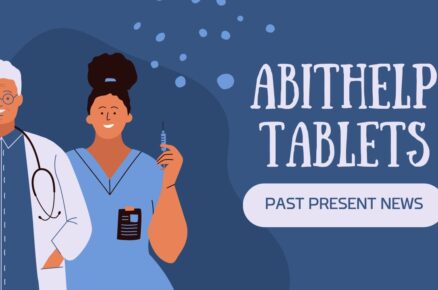
Personal injury law is a significant area of legal practice that focuses on the rights of individuals who have been harmed due to the negligence or wrongful conduct of others. The breadth and depth of personal injury cases span from automobile accidents and medical malpractice to slip-and-fall accidents and even product liability cases.
At the heart of these cases lies one common question: Is there a viable claim?
Understanding the viability of your personal injury case is crucial. Not only does it provide a pathway for you to seek redress for the harm you’ve suffered, but it also helps you anticipate the journey ahead and manage your expectations.
Key Components of a Viable Personal Injury Case
The foundation of any personal injury claim rests on four critical pillars: duty of care, breach of duty, causation, and damages. Let’s delve deeper into what these elements mean and how they determine the viability of your case.
- Duty of Care: This is a legal obligation imposed on an individual requiring adherence to a standard of reasonable care while performing acts that could potentially harm others. For instance, drivers have a duty of care to obey traffic laws and avoid causing harm to pedestrians or other drivers.
- Breach of Duty: A breach occurs when someone fails to fulfill their duty of care. Taking the previous example, if a driver chooses to text while driving, causing a distraction, they’re breaching their duty of care to other road users.
- Causation: This element connects the breach of duty to the injury suffered. It’s not enough to prove that someone breached their duty; you must also show that this breach directly caused your injury. In the texting driver example, if the distracted driver swerves into another lane and hits a motorcyclist, the causation would be the driver’s distraction led to the accident and subsequent injury.
- Damages: The last element involves proving that you’ve suffered harm that can be compensated by monetary means. Damages could be medical expenses, lost wages due to time off work, or even emotional distress.
Role of Documentation and Evidence
Creating a compelling personal injury case involves more than understanding the legal concepts of duty, breach, causation, and damages. A crucial part of this process is the collection, documentation, and presentation of evidence to support your claims.
Key forms of evidence include medical records, which provide proof of injuries and their connection to the accident; photos from the accident scene to illustrate specific details; witness testimonies for an unbiased perspective; police reports for an objective account; personal documentation like a recovery journal to demonstrate non-economic damages, and financial documentation to validate claims for economic damages.
Compiling this evidence can be challenging, particularly while recovering from an injury, highlighting the importance of legal representation. The strength of a personal injury claim largely depends on the quality and completeness of evidence, underscoring the necessity for meticulous documentation.
Dealing with Insurance Companies
When embarking on a personal injury claim, interactions with insurance companies are almost inevitable. Understanding their operations can significantly influence the outcome of your case.
Key to this process is the role of claims adjusters who investigate the claim, assess damages, and determine the payout amount. However, as they work for the insurance company, their aim might be to minimize the payout.
Once a claim is filed, the insurance company verifies the accident details and evaluates your injuries and damages, often requiring various documents and evidence.
The insurance company typically proposes a settlement offer after their investigation, which might be lower than expected. It’s crucial not to accept the first offer immediately but to use it as a negotiation starting point.
Be cautious in your communication with insurance companies to avoid inadvertently damaging your claim. Sometimes, claims might be denied, necessitating understanding the denial reasons and exploring further options with your attorney.
The claim process with insurance companies can be complex and challenging by design, as they aim to scrutinize claims thoroughly and minimize payouts. Hence, knowledge about their operations and having skilled legal representation is invaluable in navigating this process.
The Significance of Legal Representation
Engaging with the legal system in a personal injury case can be challenging due to the complexity of laws and processes, and the emotional stress of recovery. This underscores the need for skilled legal representation.
A personal injury attorney is crucial for assessing case viability by evaluating its facts and identifying critical legal elements. They help navigate the convolutions of legal proceedings, ensuring correct procedures and timelines are followed.
They are key in gathering and organizing evidence, interviewing witnesses, and if necessary, involving experts.
Personal injury lawyers negotiate with insurance companies on your behalf, using their expertise to secure a fair settlement. If the case goes to court, they represent you by arguing your case, presenting evidence, and cross-examining witnesses.
Choosing the right personal injury lawyer should be a thoughtful process, looking for experience, a good track record, and positive client reviews. This individual should be someone you trust and feel comfortable with as they will be your advocate.
Understanding the viability of a personal injury case is a journey involving knowledge of law, evidence collection, dealing with insurance companies, and potentially seeking legal representation. With the right knowledge and support, you can make informed decisions and seek the justice you deserve.
Conclusion
In conclusion, determining the viability of your personal injury case is a multifaceted process. A competent personal injury attorney can provide valuable guidance throughout this complex process, improving your chances of a favorable outcome.
While this journey may seem daunting, it’s important to remember that the purpose of personal injury law is to provide relief to victims of negligence or wrongful acts. As you move forward, remember that every personal injury case is unique, so what worked for one person might not work for another. Stay informed, be proactive, and never hesitate to seek legal advice when needed. Read more






